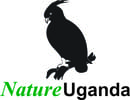Public Dialogue on Ecosystem Restoration for Climate Resilience

NatureUganda, in collaboration with NEMA, the Jane Goodall Institute (JGI), Uganda Biodiversity Fund (UBF), and CARITAS Uganda, organized a public dialogue to tackle the pressing issue of ‘Land and ecosystem degradation crisis and rising impacts of climate change. The dialogue, held on May 29, 2024 at Protea Hotel in Kampala, aimed to engage the public during World Environment Day celebrations and inspire actionable solutions for environmental restoration.
The national theme for this year’s World Environment Day, “Land Restoration for Climate Resilience,” underscores the urgent need to restore our environment to achieve human well-being, economic prosperity, job creation, and sustainable socio-economic transformation. As the global population increases and disasters become more frequent, urgent mechanisms involving scientific experts, policymakers, and non-state actors are necessary to prevent further crises.
The Senior Manager of Environment Planning and Coordination, NEMA, Dr. Francis Ogwal provided a comprehensive background on World Environment Day, noting that Uganda’s national theme aligns with the government’s Ten-Year Plan of Action for Restoration of the Environment and Natural Resources (2021-2031), Vision 2024, and NDPIII. He emphasized the importance of land restoration for human well-being and sustainable development.
The Keynote speaker Dr. Peter Kimbowa, a Board Chairman of NSSF and an internationally recognized consultant, delivered a compelling case for ecosystem restoration. He warned that by 2050, out of 10 billion people, 1.2 billion could become climate refugees if current trends continue as predicted. Dr. Kimbowa highlighted Uganda’s potential to grow food for the entire continent and stressed the importance of private sector involvement in environmental discussions. He advocated for accountability, suggesting an annual “name and shame” list to hold entities accountable for their environmental actions, advocating for a proactive approach to conservation and green initiatives. He added that ‘we need to conserve, restore and implement nature-based solutions’, asserting that proactive measures are more cost-effective than reactive remedies.
The panel discussion, moderated by Dr. Peter Apell from JGI, included panelists Dr. Panta Kasoma (NatureUganda), Mr. James Byamukama (JGI), Mr Ivan Amanigaruhanga (UBF) and Dr. Francis Ogwal (NEMA). Mr. Byamukama emphasized the responsibility owed to future generations, urging the empowerment of youth in environmental conservation. Ivan Amanigaruhanga stressed the need for youth involvement and the translation of verbal commitments into demonstrable actions. “Each individual has a role to play in this collective effort of safeguarding the environment, said Dr Apell.
Dr. Panta Kasoma highlighted the critical role of the private sector in environmental conservation, calling for a more demanding society to drive governmental action. In his closing remarks, he thanked the participants and partners for their support, echoing that talking alone is insufficient and immediate action is necessary.
The dialogue raised awareness about the crisis of land and ecosystem degradation and the urgent need for ecosystem restoration and strengthen climate resilience. The event attracted a diverse audience, including members of NatureUganda, the conservation community, academic institutions, students, media houses, and government institutions.
Click here for the Keynote Speaker’s Presentation (PDF)
Related Posts
Recent Posts
Safeguarding Uganda’s Only Breeding Population of Rüppell’s Vultures
Culture, Traditional Knowledge and Uganda’s Wetlands: Insights from the World Wetlands Day 2026 Public Dialogue
Annual Planning Meeting Sets the Course for Conservation Action in 2026
All Categories
- capacity building (1)
- Conservation and Development (36)
- Eco-tourism (6)
- Education and Awareness (15)
- Forests (13)
- Gorvenance (2)
- Habitats (14)
- membership (2)
- Nature walk (3)
- People (10)
- Projects (13)
- Public dialogue (10)
- Research and Monitoring (23)
- Sites (6)
- Species (14)
- Wetlands (17)
- Wildlife (10)




